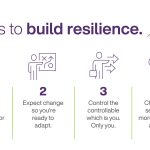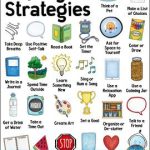
Mindfulness meditation is a practice that involves focusing one’s attention on the present moment while calmly acknowledging and accepting one’s thoughts, feelings, and bodily sensations. It is often associated with emotional balance and can help individuals better manage their emotions and improve their overall well-being.
The Basics of Mindfulness Meditation
To practice mindfulness meditation, find a quiet and comfortable space where you can sit or lie down in a relaxed position. Close your eyes if it helps you maintain focus. Begin by taking a few deep breaths, allowing yourself to let go of any tension or distractions.
Once you are settled, bring your attention to your breath. Notice the sensation of each inhale and exhale, without trying to control or alter your breath. Simply observe the natural rhythm of your breathing.
As thoughts arise, gently acknowledge them without judgment and let them go. Redirect your focus back to your breath. It is normal for your mind to wander; this is part of the practice. Each time you notice your mind wandering, kindly bring your attention back to your breath.
Becoming Aware of Emotions
During mindfulness meditation, you become more attuned to your emotions as they arise. By observing your thoughts and feelings without judgment, you develop a greater understanding of your emotional patterns and triggers.
With regular practice, you become more skilled at recognizing emotions as they arise, allowing you to respond to them instead of reacting impulsively. This heightened self-awareness helps in cultivating emotional balance and preventing the escalation of negative emotions.
Acceptance and Non-Attachment
One of the key principles of mindfulness meditation is acceptance. Instead of trying to suppress or ignore emotions, you learn to acknowledge and accept them as they are. By doing so, you create a safe space within yourself to explore and understand your emotional experiences.
Non-attachment is another essential aspect of mindfulness meditation. Rather than becoming entangled in the stories and narratives associated with your emotions, you practice observing them with a sense of distance and detachment. This enables you to develop a healthier relationship with your emotions and prevent them from overwhelming your daily life.
Emotional Regulation and Stress Reduction
Mindfulness meditation has been shown to be effective in regulating emotions and reducing stress. By training your mind to stay present, you can prevent yourself from getting caught up in negative thought patterns and emotional reactions.
When faced with challenging emotions, mindfulness allows you to pause and respond consciously rather than reacting impulsively. Through this intentional response, you become better equipped to navigate emotionally charged situations with clarity and composure.
Regular practice of mindfulness meditation also helps reduce stress levels by activating the relaxation response in the body. This response counteracts the physiological effects of stress, promoting a sense of calmness and well-being.
Improving Emotional Well-being
Through mindfulness meditation, individuals can experience a range of benefits related to emotional well-being. Some of these benefits include:
Increased self-awareness and emotional intelligence
Enhanced ability to regulate and express emotions
Reduced reactivity and impulsivity
Improved resilience in the face of challenges
Greater compassion and empathy towards oneself and others
Greater overall sense of calm and contentment
By incorporating mindfulness meditation into your daily routine, you can nurture a positive and balanced emotional state, leading to improved relationships, productivity, and overall well-being.
Conclusion
Mindfulness meditation provides a valuable tool for achieving emotional balance and well-being. By cultivating awareness, acceptance, and non-attachment, individuals can gain better insight into their emotional experiences and respond to them in a more conscious and healthy manner.
With regular practice, mindfulness meditation becomes a part of your life, allowing you to navigate the ups and downs with greater resilience and grace. Ultimately, it empowers you to live a more fulfilling and emotionally balanced life.





